SPEAKERS

OUR CONFERENCE PARTNERS



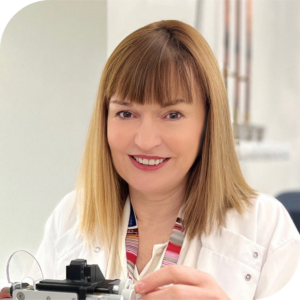
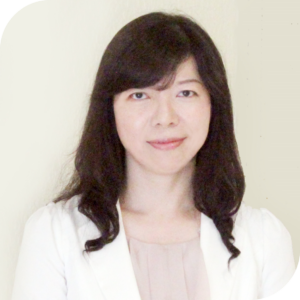
Yu-Ju Chen obtained her B.S. in Chemistry from National Taiwan University (1992) and Ph.D. degree at Iowa State University. After postdoctoral research work at the Ames Laboratory, Department of Energy, USA and National Tsing Hua University, she joined the Institute of Chemistry of Academia Sinica in 1999, served as the Director (2013-2021) and is currently a Distinguished Research Fellow. She also holds con-current adjunct professorships at few universities. With great passion to reveal disease network, Yu-Ju is one of the pioneering scientists in establishing mass spectrometry-based proteomics in Taiwan. In particular, she is interested in applying these tools for in-depth exploration of the proteome network in biology and diseases. She also contributes to academia services, serving as Associate Editor of “Analytical Chemistry” (since 2020), the most renown journal in analytical science. She has been the President of the Taiwan Proteomics Society (2009-2011), President of Taiwan Society for Mass Spectrometry (2011-2013), Vice President (2017-2019) of AOHUPO. She is the current President of Human Proteome Organization (HUPO, 2021-2022)-largest international society in proteomics, and Vice President (President-elect) of The Chemical Society located in Taipei (2021-2022). She is leading the Taiwan Cancer Moonshot project under the collaboration framework of the International Cancer Proteogenome Consortium (ICPC) led by National Cancer Institute, USA. The first study has revealed the pathogenesis and progression of non-smoking lung cancer patients in Taiwan (Cell, Cover Story). Her technology was also translated into a start-up company for cancer diagnosis (2018, JUN ZHI Biomedical Co., Ltd).
.
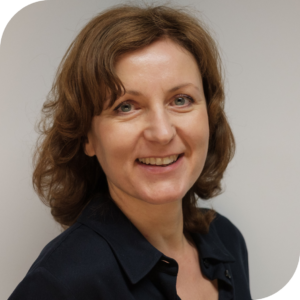
Jana Roithová graduated from Charles University in the Czech Republic (1998). Her Ph.D. thesis focused on reaction dynamics (2003), and she learned mass spectrometry techniques with Prof. Schwarz (Berlin). From 2007 to 2018, she was a lecturer and then a professor at Charles University. Since 2018, she has held a chair in spectroscopy and catalysis at Radboud University in the Netherlands. She develops techniques to study reaction mechanisms, focusing on reactive intermediates in metal-catalyzed reactions. Her research interests span from reaction mechanisms of organometallic reactions and mechanisms of small molecule activation to new reactivity concepts and reaction design. She is a member of the Royal Netherlands Academy of Arts and Sciences and received several prizes, e.g., the Ignaz L Lieben Award from the Austrian Academy of Sciences or the Rudolf Lukeš prize from the Czech Chemical Society.
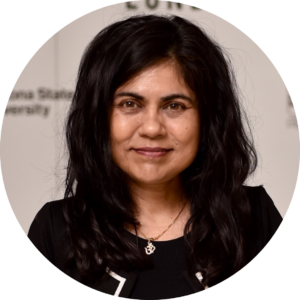
Professor Veena Sahajwalla is an internationally recognised materials scientist, engineer, and inventor revolutionising recycling science. She is renowned for pioneering the high temperature transformation of waste in the production of a new generation of ‘green materials’ at the UNSW Sustainable Materials Research and Technology (SMaRT) Centre, where she is Founding Director. Professor Veena is the inventor of polymer injection technology, known as green steel, an eco-friendly process for using recycled tyres in steel production. In 2018, Veena launched the world’s first e-waste MICROfactorieTM and in 2019 she launched her plastics and Green Ceramics MICROfactoriesTM, a recycling technology breakthrough. Professor Veena is the director of the ARC Industrial Transformation Research Hub for ‘microrecycling’, a leading national research centre that works in collaboration with industry to ensure new recycling science is translated into real world environmental and economic benefits. Professor Veena has also been appointed hub leader of the national NESP Sustainable Communities and Waste Hub. In 2021, Professor Veena featured in the ABC’s Australian Story and she was named the 2022 NSW Australian of the Year in recognition of her work. Professor Veena was named the 2022 Australian Museum Eureka Prizes winner for the Celestino Eureka Prize for Promoting Understanding of Science and was also awarded the Australian Academy of Technology and Engineering (ATSE) Clunies Ross Innovation Award. In 2023, Professor Veena was awarded the Engineering Australia Chemical College Chemical Engineer Achievement Award and the Good Design 2023 Women in Design Award.
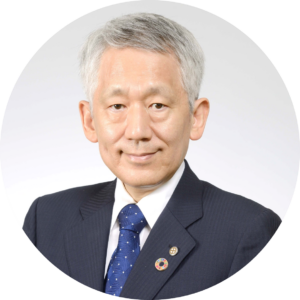
Koichi Tanaka is an Executive Research Fellow at Shimadzu Corporation in Japan. He completed his Bachelor’s degree in engineering at Tohoku University in 1983, prior to joining the Central Research Laboratory in Shimadzu Corporation. In 1985, he developed the technique known as soft laser desorption for the ionisation and mass spectrometric analysis of large biomolecules, particularly proteins. For this work he was awarded the Nobel Prize in Chemistry in 2002. Also in 2002, he received the Japanese Order of Cultural Merit Award. His continuing research interests focus on the development of novel mass spectrometry instrumentation and methods for the analysis of protein and carbohydrate structures, and their applications toward the early detection of protein-related diseases.

Professor Lisa M. Jones is the Chancellor’s Associate Endowed Chair of Chemistry and Biochemistry at the University of California San Diego. She received her PhD in Chemistry from Georgia State University. She received postdoctoral training in structural virology at the University of Alabama-Birmingham and in MS-based protein footprinting at Washington University in St. Louis. Her research is focused on extending the protein footprinting method fast photochemical oxidation of proteins (FPOP) coupled with mass spectrometry into complex model systems. Her lab has extended the method for in-cell analysis to provide structural information across the proteome. She has further developed the method for in vivo analysis in C. elegans, an animal model for human disease. Her lab aims to understand the biological causes of health disparities in cancer and other diseases. She also has a passion for increasing diversity in STEM and participates in several outreach initiatives to achieve this.

Dr. Yu Xia earned her B.S. (1999) in Chemistry from Lanzhou University, China, M.S. (2002) from Shanghai Institute of Material Medical, CASs, China, and Ph.D. (2006) under the supervision of Professor Scott A. McLuckey from Purdue University, USA. After postdoctoral training with Professor Graham R. Cooks at Purdue, Dr. Xia took positions as Assistant and Associate Professor at the Department of Chemistry, Purdue University (2009-2017). She joined Tsinghua University as a Professor of the Department of Chemistry in 2016. Dr. Xia utilizes radical chemistry as a unique approach to achieve enhanced bioanalysis via mass spectrometry. Her recent research emphasizes on developing lipidomic tools capable of resolving structural isomers. Her work has resulted in over 120 peer-reviewed publications and book chapters. She currently serves as the Associate Editor for the Journal of Mass Spectrometry and the Vice President for Diversity and Inclusion of the International Lipidomics Society.
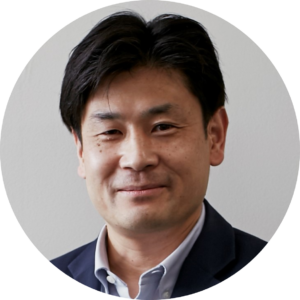
Dr. Makoto Arita received his Ph.D. from the Graduate School of Pharmaceutical Sciences, University of Tokyo in 1997. Currently he is a Dean of the Faculty of Pharmacy and a Professor of Physiological Chemistry and Metabolism at Keio University, and a Team Leader of RIKEN Center for Integrative Medical Sciences. Dr. Arita has experience leading multidisciplinary research teams as a principal investigator for “Biology of LipoQuality” a program project supported by JSPS Grant-in-aid for Scientific Research on Innovative Areas (FY2015-2020). He serves as an Executive Editor for the Progress in Lipid Research. Now he is leading JST-ERATO Lipidome Atlas Project (FY2021-2026) to pioneer the spatiotemporal biology of lipid diversity through a creation of the Lipidome Atlas, and to discover unknown molecules associated with important biological processes. Also, he is a Core Director of the Keio University World Premier International Research Center Initiative (WPI-Bio2Q) (FY2022-2032) to integrate human biology, microbiome research, and quantum computing to explore the foundations of healthy longevity.

Jesper Olsen studied analytical chemistry at University of Southern Denmark in the laboratory of Roman Zubarev. After this, he worked two years at MDS Proteomics as staff scientist before joining the laboratory of Matthias Mann as PhD student. He spent 4 years as a post-doctoral fellow at the Max Planck Institute for Biochemistry in Munich. In 2009, Jesper was recruited to head a research group at the newly established Novo Nordisk Foundation Center for Protein Research (CPR) at University of Copenhagen (UCPH). In 2012, he was promoted to vice director of CPR and in 2014 full professor at UCPH.
Jesper has made seminal contributions to the field of proteomics and high-resolution mass spectrometry, and pioneering quantitative phosphoproteomics technology and its application to study cell-signaling networks to answer outstanding questions in biology. His group is developing proteomics technologies and their work on offline peptide chromatographic fractionation in combination with fast online LC-MS/MS has enabled comprehensive analysis of human proteomes. Most recently, his group has worked on narrow-window DIA on the Orbitrap Astral mass spectrometer for high-throughput analysis of human proteomes with single cell resolution.

Dr. Renã A. S. Robinson, Professor of Chemistry at Vanderbilt University and inaugural Dorothy J. Wingfield Phillips Chair, received her B.S. in Chemistry with concentration in Business from the University of Louisville and Ph.D. in Analytical Chemistry from Indiana University under the mentorship of Professor David Clemmer. She developed proteomics methods to study aging in Drosophila (fruit flies) and continued working in aging as a Lyman T. Johnson Postdoctoral Fellow with Professor D. Allan Butterfield at the University of Kentucky. During this fellowship she began to focus on neurodegenerative disorders such as Alzheimer’s disease and received a UNCF/Merck Postdoctoral Fellowship. In 2009 she accepted a position as Assistant Professor of Chemistry at the University of Pittsburgh and in 2007 moved to Vanderbilt University as Associate Professor of Chemistry and the Dorothy J. Wingfield Phillips Chancellor’s Faculty Fellow. Renã is currently a Professor of Chemistry, Principal Investigator of RASR Laboratory, Faculty Head of House of Murray House, and actively supports the Vanderbilt Memory & Alzheimer’s Center, the Vanderbilt Institute for Chemical Biology and the Vanderbilt Brain Institute. She has a nationally and internationally recognized research program and is a leader in the field of proteomics for her work in aging, Alzheimer’s disease, and applications relevant to human health. Her laboratory is especially focused on advancing proteomics and lipidomics technologies to promote health equity in Alzheimer’s disease. Renã serves as the Immediate Past President of NOBCChE (National Organization for the Professional Advancement of Black Chemists and Chemical Engineers) where she was the 14th President from 2021- 2023 and led the organization through tremendous growth in membership, programming, funding, and overall outreach of URMs in STEM. She is currently the faculty advisor for the Nashville Student and Professional Chapter of NOBCChE, Co-Director for the Faculty ACCESS Program, and Board Member-at-Large for the US Human Proteome Organization.
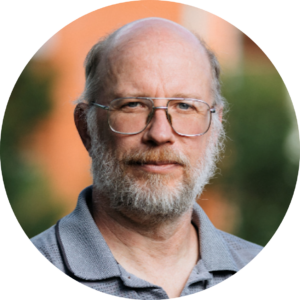
Dr. David Wishart (PhD Yale, 1991) is a Distinguished University Professor in the Departments of Biological Sciences and Computing Science at the University of Alberta. He also holds adjunct appointments with the Faculty of Pharmaceutical Sciences and with the Department of Pathology and Laboratory Medicine. He has been with the University of Alberta since 1995. Dr. Wishart’s research interests are very wide ranging, covering metabolomics, analytical chemistry, drug chemistry, natural product chemistry, molecular biology, protein chemistry and neuroscience. He has developed a number of widely techniques based on NMR spectroscopy, mass spectrometry, liquid chromatography and gas chromatography to characterize the structures of both small and large molecules. As part of this effort, Dr. Wishart has led the “Human Metabolome Project” (HMP), a multi-university, multi-investigator project that is cataloguing all the known chemicals in human tissues and biofluids. Using a variety of analytical chemistry techniques along with text mining and machine learning, Dr. Wishart and his colleagues have identified or found evidence for more than 250,000 metabolites in the human body. This information has been archived on a freely accessible web-resource called the Human Metabolome Database (HMDB). Dr. Wishart has also been using machine learning and artificial intelligence to help create other useful chemistry databases, such as DrugBank, FooDB and ContaminantDB and software tools (such as MetaboAnalyst, CFM-ID and BioTransformer) to help with the characterization and identification of metabolites, drugs, pesticides and natural products. Over the course of his career Dr. Wishart has published more than 500 research papers in high profile journals on a wide variety of subject areas.
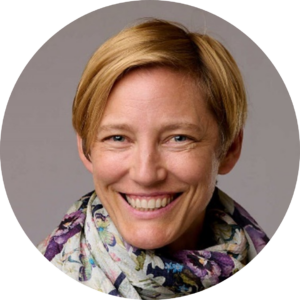
Dr Anne K Bendt is Principal Investigator and Deputy Director at SLING, the Singapore Lipidomics Incubator, an internationally renowned R&D program in lipid research and technology development, anchored at the National University of Singapore. She focusses on the translation of mass spectrometry-based technologies into clinical applications, primarily for lipids and small molecules.
Anne is further passionate about training and education, and has made substantial contributions to SLING’s various workshops and ‘ic lipid’ training courses. Internationally, Anne is co-instructor of ‘Lipidomics 101’, a short course for clinical lipidomics.
With clinical translation close to her heart, Anne serves on the ‘Metabolomics’ working group within the International Federation of Clinical Chemistry and Laboratory Medicine (IFCC). She further serves on the steering committee of ‘Clinical Lipidomics’ within the International Lipidomics Society (ILS) and as Associate Editor for ‘Journal of Mass Spectrometry and Advances in the Clinical Lab’ (JMSACL). Early 2019 Anne co-founded the global initiative ‘Females in Mass Spectrometry’ (FeMS), serving as Chair on the Board.
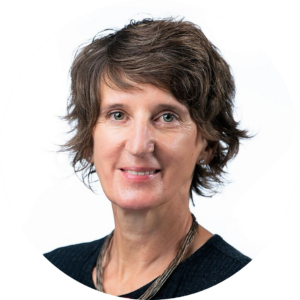
Ljiljana (Lili) Paša-Tolić received her PhD in Chemistry at the University of Zagreb in Croatia, was a postdoctoral fellow at Pacific Northwest National Laboratory (PNNL) and visiting scientist at the National High Magnetic Field Laboratory. Today she is a Laboratory Fellow and Lead Scientist at the Environmental Molecular Sciences Laboratory (EMSL) located at PNNL. She is known for her pioneering contributions to mass spectrometry, high-throughput, and top-down proteomics, including the development of transformative instrumentation and methods for biological and environmental research. Dr. Paša-Tolić has authored more than 300 peer-reviewed publications; presented at more than 150 seminars, conferences, and workshops; and served at numerous editorial and advisory committees. She was a founding organizer to the worldwide Consortium for Top-Down Proteomics (CTDP), a nonprofit corporation that works toward the goal of accelerating “the comprehensive analysis of intact proteins and their complexes” and is currently serving on the CTDP Board. She has mentored more than 50 students and post-doctoral fellows, and organized several conferences, workshops, symposia, and schools focused on various aspects of analytical chemistry, omics, and mass spectrometry. In 2019 and 2021, she was selected for the Analytical Scientist Top 100 Power List, recognizing her pioneering contributions to high resolution mass spectrometry for applications ranging from environmental ecology to medicine. In 2021, she was selected to join the Washington State Academy of Sciences (WSAS) and is currently serving on the WSAS Board.
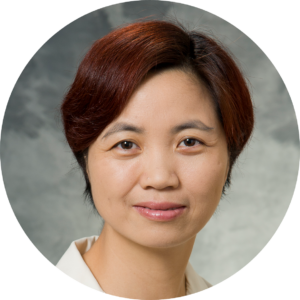
Ying Ge received a B.S. in Chemistry from Peking University and Ph.D. in Bioanalytical Chemistry from Cornell University with Professors Fred McLafferty and Tadhg Begley. Dr. Ge is currently a Vilas Distinguished Achievement Professor in the Department of Cell and Regenerative Biology and Department of Chemistry at the UW-Madison. Dr. Ge’s research is highly interdisciplinary that cuts across the traditional boundaries of chemistry, biology, and medicine. Dr. Ge has devoted her past twenty years in developing and applying top-down mass spectrometry-based proteomics to biomedical research. Recently her lab has developed a multi-pronged approach to address the challenges in top-down proteomics. By creatively integrating her expertise in mass spectrometry with cardiac biology, she has made significant contributions to understanding cardiac disease and regeneration. Dr. Ge has published over 170 papers with many in high impact journals such as Nature Methods, Nature Communications, PNAS, JACS and Circulation Research. She has received awards including the ASMS Biemann Medal (2020), HUPO Clinical and Translational Proteomics Sciences Award (2021), and HPLC Society Georges Guiochon Faculty Fellowship (2016), as well as The Top 100 Analytical Scientist Power List (on a global scale, 2019, 2021) and The Top 10 Analytical Scientist Power List (in North America, 2020).
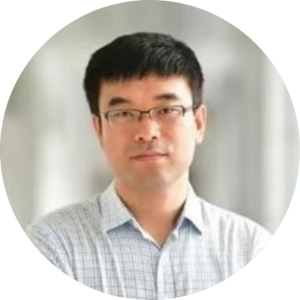
Dr. Ruijun Tian is a tenured professor in the Department of Chemistry at the Southern University of Science and Technology (SUSTech). He serves as the associate dean of the Guangming Advanced Research Institute of SUSTech, director of the Research Center for Chemical Biology and Omics Analysis. He received the National Science Fund for Distinguished Young Scholars. In 2008, Dr. Tian obtained his Ph.D. in Analytical Chemistry from the Dalian Institute of Chemical Physics, Chinese Academy of Sciences. He performed postdoctoral training at the Institute for Systems Biology in Ottawa and Lunenfeld-Tanenbaum Research Institute at the University of Toronto and Mount Sinai Hospital in Canada. In 2014, he was appointed as an Associate Professor in the Department of Chemistry at SUSTech and was promoted to a tenured Full Professor in 2020. His research focuses on proteomics related method development, as well as their applications in biomedical fields such as cell signaling and tumor microenvironment. He has published over a hundred papers in internationally renowned academic journals, including Nature, Nat. Chem. Biol., Cell Chem. Biol., Nat. Commun., PNAS, Mol. Cell. Proteomics, Anal. Chem. Dr. Tian serves as an editorial board member for Chinese Journal of Analytical Chemistry and Chromatography, and guest editor for Current Opinion in Chemical Biology.

Dr. Da Ren is the founder and CEO of BioTherapeutics Solutions, an analytical solution provider for the biopharmaceutical industry. Prior to starting BioTherapeutics Solutions, he was a Scientific Director at Amgen in charge of analytical platforms and global strategy of the Multi-Attribute Method (MAM). In 2015, he led the first-in-industry implementation of MAM in the cGMP environment. Since then, MAM has been accepted by over 30 regulatory agencies around the world. Da is on the advisory board of several companies and serves multiple roles in industry-wide organizations including USP, CASSS, ASMS, and MAM Consortium. Prior to Amgen, Da was a Senior Applications Chemist at Waters Corporation. He received his Ph.D. in